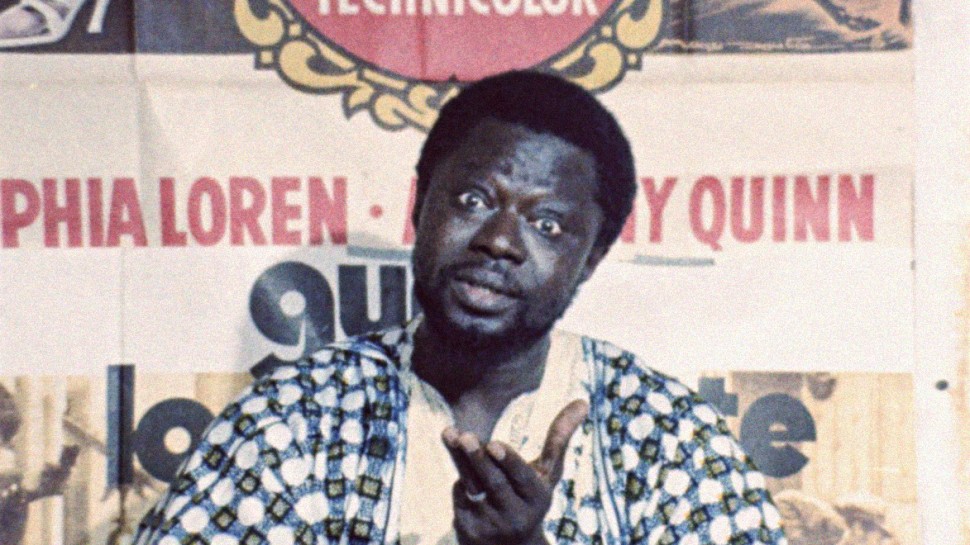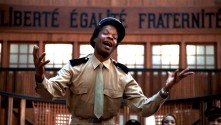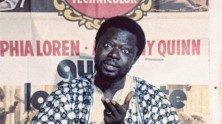
Les Bicots-Nègres, vos voisins
With Armand Abplanalp, Jean Berger, Claude Debord.
Mauritania/France, 1974, 35mm, color, 100 min.
French and Arabic with English subtitles.
Med Hondo’s second feature film was arguably considered by many as a UFO, an Unassimilable Filmic Object. Indeed, although the film won the Golden Tanit at the Carthage Film Festival in 1974, it acquired English subtitles only in… 2019. Here the maverick director offers one of his boldest cinematic experiments yet, in the form of a long essay with multiple endings and durations (one version is three hours long), and eight seemingly loosely related sequences—in which he trades dramatic unity for organic unity between filmmaker and subjects—involving a detour through a long opening sequence, the invocation of the memory of colonialism and perverted independence, and a subjunctive image restaging the neocolonial pact in an imaginary garden party sequence. In effect, the film is a masterclass on neocolonialism (regrettably still pertinent) and a brilliant analysis of the repressive postcolonial state apparatus—before examining the experiences and living conditions of migrants, their affective miseries, and their coming into consciousness and rise against the system—which concludes with a beautiful homage to African cinema as a desirable cinema that has found its place alongside those who struggle.
One of the most memorable cinephilic moments of the film is its twenty-one-minute opening sequence, meditating on both the Bazinian question “What is cinema?” and the 1970s theory question of the relationship between cinema and ideology. As Med Hondo put it well himself: “I think that it is fundamentally impossible for any African filmmaker, and, indeed for any Third World filmmaker to make films without asking themselves questions about the cinema. Mine were: What kind of film should I make? For whom? What is cinema? I decided to raise and address these questions directly on film, to put my theory into practice.”



















